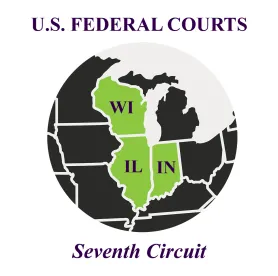Under most of the federal civil rights laws, employers are covered only if they employ 15 or more employees. See, e.g., 42 U.S.C. § 2000e(b) (Title VII). Businesses that employ fewer than 15 employees are not subject to the laws, the result of a Congressional policy judgment that requiring smaller enterprises to understand and follow the laws might be too burdensome.
Of course, some businesses that employ fewer than 15 employees have sister and parent corporations that also employ workers. Are those entities subject to the federal civil rights laws?
No, said the Seventh Circuit in Prince v. Appleton Auto, LLC, No. 20-1106 (Oct. 21, 2020), at least as long as the entities respect corporate formalities. While some federal laws examine the integration between two entities to determine coverage, see, e.g., 29 C.F.R. § 825.104(c) (FMLA), integration alone is not enough under Title VII and the other civil rights laws. Instead, employees of separate entities will be aggregated only if the entities engage in conduct that justifies piercing the corporate veil.
In Prince, four car dealerships operated as separate entities, yet they were majority-owned by the same individual, received back office services from another corporate entity owned by the individual, and used a shared website. When one of the dealerships fired an employee, the employee sued for race discrimination and retaliation under Title VII.
Though the dealership entity that employed the plaintiff had fewer than 15 employees, the plaintiff argued that the integration among the entities justified aggregating the employees and subjecting the employer to Title VII. But the court concluded that the entities honored the corporate formalities: The back office entity properly billed each dealership separately for their share of its services; the dealerships each paid for a portion of the website; and each entity maintained its own bank accounts, paid its own taxes and employees, and entered into its own contracts.
Because the question of piercing the corporate veil is one of state law, the court examined Wisconsin case law to determine whether it was warranted under these facts. Under Wisconsin law, piercing the veil “is appropriate only when applying the corporate fiction would accomplish some fraudulent purpose, operate as a constructive fraud, or defeat some strong equitable claim.” Fontana Builders, Inc. v. Assurance Co. of Am., 882 N.W.2d 398, 414 (Wis. 2016). Here, despite the integration between the two companies, the court concluded that a Wisconsin court would not pierce the corporate veil. Accordingly, the court concluded that the dealership was not subject to Title VII and affirmed the district court’s grant of summary judgment.
One final state law point is in order. Before Wisconsin employers rush off and conclude that the civil rights laws do not apply to them, remember that the Wisconsin Fair Employment Act (the state analogue to the federal civil rights laws) defines “employer” as any person, business, or entity “employing at least one individual.” Wis. Stat. § 111.32(6)(a). Thus, even if a particular entity is not covered under federal law, it will still almost certainly be subject to state law. As always, employers should strive to ensure that they make employment decisions based on performance, not any factors that could lead to discrimination or retaliation claims.



 />i
/>i

